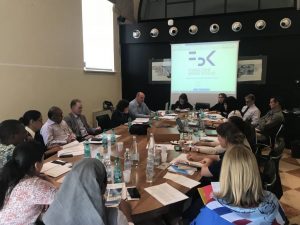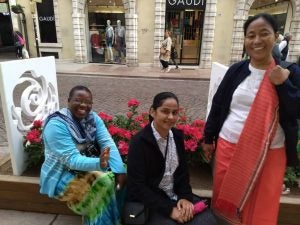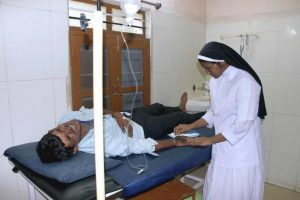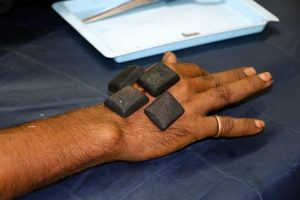As part of my role with the O’Neill Health Law Initiative, I recently attended part two of the Global Faith-Based Health Systems (GFBHS) Conference in Trento, Italy, titled “Global Faith-Based Health Systems: Integrating Technology and Empowering Communities.” The GFBHS project was conceptualized by Dr. Bette Jacobs (Georgetown University Health Law Initiative), Fr. Kevin Fitzgerald (Georgetown University), and Colleen Scanlon (Catholic Health Initiatives) to leverage the longstanding commitment of Catholic ministries to promote global health. The project was made possible through a donor funded partnership led by Dr. Jacobs—the Health Law Initiative. Georgetown has partnered with Fondazione Bruno Kessler (FBK), the premier research institute in Trento, Italy, for this important project.

The purpose of these first two convenings is to: (1) discuss the role of faith-based organizations (FBOs) in delivering healthcare to some of the world’s most isolated and vulnerable populations, and (2) identify challenges and opportunities to improve upon their work. The first convening was held on October 2-3, 2017, while the second meeting was held six months later on May 21-23, 2018. Both took place in Trento, Italy. Because of the size, service area, and long history, these first two meetings focus on Catholic health systems.
The convenings consisted of leaders of some of the largest FBOs in the world—including Catholic Medical Mission Board, Catholic Relief Services, Catholic Health Association, Catholic Health Initiatives, and Caritas Internationalis—as well as scholars, lawyers, and policy experts who work in public health. The goal of these two meetings is to gather major Catholic-based organizations providing direct healthcare services and resources to communities to identify strengths and weaknesses within their organizations and the entire FBO healthcare delivery system. The first convening focused on a number of themes including living the mission; community engagement; technology and digital health; communication; mapping; and supply chain issues.

The second meeting gathered even more experts, including community health workers (CHWs) from countries such as Kenya, India, and Bangladesh, to discuss the issues identified in the first meeting and attempt to formulate recommendations for improving services. Thus far we have made progress in increasing communication and collaboration among these Catholic-based healthcare providers. This second meeting also allowed the group to hear voices from CHWs working on the ground in low-resource countries about their day-to-day needs, concerns, and struggles. Aside from a major publication, there is hope of a usable digital health technology tool to come from these convenings.
One important lesson we learned from the community health workers is the importance of emotional and mental health for overall well-being. This was reflected in a story about the healing powers of the “black stone”, a traditional healing method used in Bangladesh and parts of Africa for snake bites. Rural clinicians often use these stones to help remove venom after a patient is bitten by a snake. The stone is often kept on the wounded area for a number of days, and the length of time varies depending on the type of snake bite. Throughout the conference and over long dinners, we were entertained with stories of the magical powers of the black stones. Although some western doctors and scientists may rebuke the healing powers of the stones, as a group, we all agreed that regardless of the science and/or medicine behind the stone, it has—at the very least—some healing power in that people believe in the black stone’s power to heal, and that alone can help improve overall health outcomes.
This is just one of the many important lessons we learned from the CHWs at the conference. We have just begun what will hopefully be a longstanding partnership among major healthcare providers and people who deliver care to the world’s most vulnerable populations. I am glad to have been a part of these first two meetings, and we soon identify concrete next steps for the project to continue to move forward in hopes of improving overall quality of healthcare and delivery while empowering communities globally.





